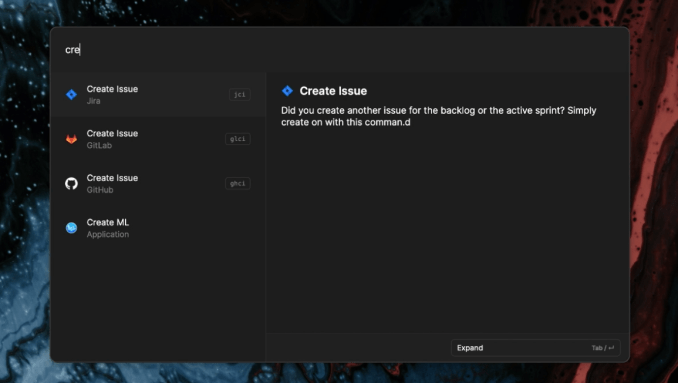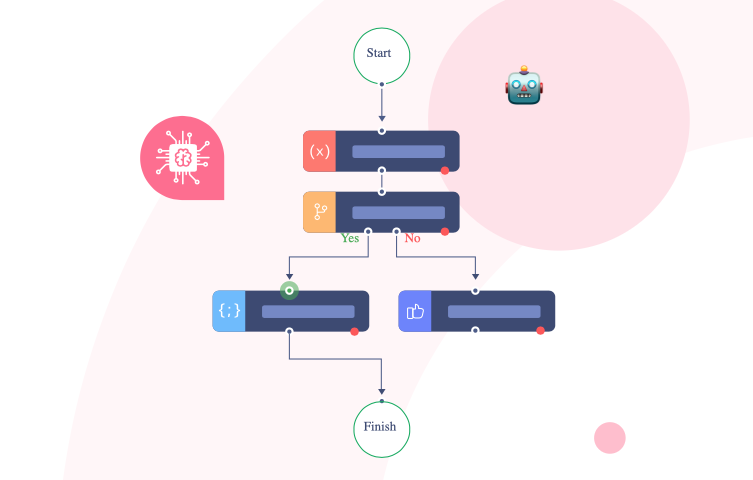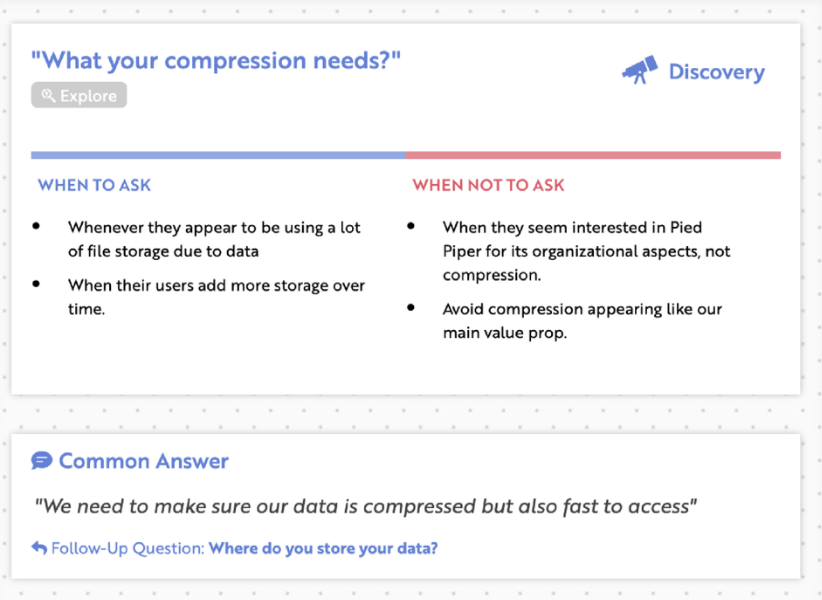All the companies from Y Combinator’s W20 Demo Day, Part III: Hardware, Robots, AI and Developer Tools
Y Combinator’s Demo Day was a bit different this time around.
As concerns grew over the spread of COVID-19, Y Combinator shifted the event format away from the two-day gathering in San Francisco we’ve gotten used to, instead opting to have its entire class debut to invited investors and media via YC’s Demo Day website.
In a bit of a surprise twist, YC also moved Demo Day forward one week, citing accelerated pacing from investors. Alas, this meant switching up its plan for each company to have a recorded pitch on the Demo Day website; instead, each company pitched via slides, a few paragraphs outlining what they’re doing and the traction they’re seeing, and team bios. It’s unclear so far how this new format — in combination with the rapidly evolving investment climate — will impact this class.
As we do with each class, we’ve collected our notes on each company based on information gathered from their pitches, websites and, in some cases, our earlier coverage of them.
To make things a bit easier to read, we’ve split things up by category rather than have it be one huge wall of text. These are the companies that are working on hardware, robotics, AI, machine learning or tools for developers. You can find the other categories (such as biotech, consumer, and fintech) here.
AI and Machine Learning
Datasaur: A tool meant to help humans label machine data data sets more accurately and efficiently through things like auto-correct, auto-suggest and keyboard hotkeys. It’s free for individual labelers, $100 per month for teams of up to 20 labelers, with custom pricing for larger teams.
1build: Automatic, data-driven job cost estimates for construction companies. You upload your plans, and 1build says it can prepare accurate bids “in minutes.” The company projects a revenue run rate of over $600,000, and says it has completed estimates for mega companies like Amazon, Starbucks and 7-Eleven.
Handl: An API for turning paper documents — including handwritten ones — into structured data ready to be plunked into a database or CRM. While the company says that around 85% of its processing is handled by their AI, it’s backed by humans to validate data when the AI’s confidence is low. Nine months after launch, the company is seeing an ARR of $0.9 million.
Zumo Labs: Uses game engines to generate pre-labeled training data for computer vision systems. By synthesizing the data rather than collecting it from photos/videos of the real world, the company says it can create massive data sets faster, cheaper and without privacy issues.
Teleo: Retrofits existing construction equipment to allow operators to control them remotely. The company says it has built a “fully functional teleoperated loader” since being founded three months ago, and plans to charge construction companies a flat monthly fee per vehicle. The company’s co-founders were previously head of Hardware Engineering and director of Product Manager at Lyft, with both having worked on Google’s Street View team.
Menten AI: Menten AI says it’s using “quantum computing and machine learning” combined with synthetic biology to design new protein-based drugs.
Turing Labs Inc.: Automated, simulated testing of different formulas for consumer goods like soaps and deodorant. Home products and cosmetics can be months of work for R&D labs. Turing has built an AI engine that helps with this process — much like the AI engines used in drug discovery — cutting down the time to days. It’s already working with some of the biggest CPG companies in the world. You can find our previous coverage on Turing here.
Segmed: Segmed is building data sets for AI-driven medical research. Rather than requiring each and every researcher to individually partner with hospitals and imaging facilities, Segmed partners with these organizations (currently over 50) and standardizes, labels and anonymizes the data.
Ardis AI: Ardis AI wants to build the foundation of artificial general intelligence — technology that read and comprehend text like a human. By combining neural networks, symbolic reasoning and new natural language processing techniques, Ardis AI can serve companies that don’t want to hire teams to do data extraction and labeling.

Agnoris: Agnoris analyzes a restaurant’s point-of-sale data to recommend changes to pricing, delivery menus and staffing. For $3,600 per year per restaurant location, Agnoris claims to be able to raise profits by 20%. The company started after the founder opened a restaurant that was packed yet losing money, so it built machine learning tools to improve margins and now it’s selling that software to all eateries.
Froglabs: Froglabs provides weather forecasting AI to businesses for predicting solar and wind energy production, delivery delays, staffing shortages, sales demand and food availability. By ingesting petabytes of weather data, it can save companies money by ensuring their logistics aren’t disrupted. Founded by a long-time Googler who started its Project Loon internet-beaming weather balloons, it’s now signing up e-commerce, retail, rideshare, restaurant and event businesses.
PillarPlus: PillarPlus is a platform that automates the blueprint-designing phase of a building project. It takes a design from an architect or contractor and maps out mechanical, fire, electrical and plumbing details, and estimates the bill of materials and project cost, steps that otherwise take months of work.
Glisten: Glisten uses computer vision and machine learning technologies to develop better, more consistent data sets for e-commerce companies. Its first product is an AI-based tool to populate and enrich sparse product data. Find our previous coverage of Glisten here.
nextmv: Nextmv gives its customers the ability to create their own logistics algorithms automatically — allowing businesses to optimize fleets and manage routes internally.

Visual One: Movement-detecting security cameras can bring up a lot of false positives: there’s motion, yes, but not necessarily anything harmful. Visual One has built an AI platform that integrates with home security cameras to “read” the specific movements that they detect. Owners can create customised alerts so they get notifications only for what they care about. The company’s software can check for furniture-destroying pets, package-lifting thieves, the death-defying antics of toddlers and more. Find our previous coverage of Visual One here.
PostEra: “Medicinal chemistry-as-a-service” is the idea here: PostEra’s platform can design and synthesize molecules faster and at a lower cost than the typical R&D lab, speeding up the research time it takes to test new combinations in the drug discovery process.
Hardware and Robotics
Cyberdontics: Robotics have already revolutionized surgery, courtesy of companies like da Vinci-maker, Intuitive. Cyberdontics is aimed at doing the same for oral surgery, beginning with crowns — one of the more expensive and time-intensive procedures. The company says its robot is capable of performing the generally two-hour procedure in 15 minutes, charging a mere $140 for the job.
Avion: Focused on inhabitants of difficult to reach areas in Africa, Avion is building a drone-based delivery system. The plans consist of medium and long-range medical drones tied to a centralized hub. The drones are hybrid and autonomous with vertical take-off capabilities, able to take 5-kg payloads as far as 150 kms.
SOMATIC: Industrial bathroom cleaning is a prime “dull”/“dirty” candidate to be replaced by automation. Somatic builds large robots that are trained to clean restrooms via VR. The system sprays and wipes down surfaces and is capable of opening doors and riding up and down in the elevator. Find our previous coverage of SOMATIC here.

RoboTire: Anyone who’s ever sat in a service shop waiting room knows how time-intensive the process can be. RoboTire promises to cut the wait time from 60 minutes down to 10 for a set of four tires. The company has begun piloting the technology in locations around the U.S. Find our previous coverage of RoboTire here.
Morphle: Designed to replace outdated analog microscopes, Morphle’s system uses robotic automation to improve imaging. The startup processes higher-resolution images than far pricier systems and with a much smaller failure rate. Morphle has begun selling its system to labs in India.
Daedalus: Founded by an early engineer at OpenAI, Daedalus is building autonomous software to allow industrial robots to operate without human programming, beginning with CNC machines. The company projects that it can improve productivity in the metal machining market by 5x.
Exosonic, Inc.: Exosonic makes supersonic commercial aircraft that don’t have to produce a loud sonic boom, so they can be flown over land. Its goal is a plane that can fly from SF to NYC in three hours. The CEO worked on NASA’s low-boom X-59 aircraft while at Lockheed Martin. Exosonic now has letters of intent from a major airline and two Department of Defense groups, plus a $300,000 U.S. Air Force contract.
Nimbus: Founded by a serial entrepreneur and based in Ann Arbor, Mich., Nimbus is developing the next-generation vehicle platform for urban transportation. Founder Lihang Nong previously launched the fuel-injection systems developer PicoSpray and is now looking to answer the question, “Can a vehicle be several times more space and energy efficient than today’s cars while actually being more comfortable to ride in?”

UrbanKisaan: UrbanKisaan is a vertical farming operation based in India that delivers fresh produce subscriptions to households. Its farms of stacked-up hydroponic tables can be located near cities with just 1% of the land usage of traditional agriculture, and there are no pesticides necessary. In a market with a growing middle class seeking healthy foods, delivering from farm-to-door could let UrbanKisaan control quality and its margins.
Talyn Air: Two former SpaceX engineers have developed a long-range electric vertical take-off and landing (eVTOL) aircraft for passengers and cargo. The startup has created an electric fixed-wing aircraft that is caught mid-air with a custom winged drone during take offs and landings, an approach that its founders say give this aircraft three times the range of its competitors, at 350 miles.
Developer Tools
BuildBuddy: Two ex-Googlers want to provide a “Google-style development environment” to all by building an open-source UI/feature set on top of Google’s Bazel software. The company says that their solution speeds up build times by up to 10x. It’s free for independent developers, with the price scaling from $4 per user to $49 per user depending on the size of the team and the features required.
Dataline: Meant to let websites gather analytics data from users who are using ad-blocking tools. Claiming that most ad-blocker users care mostly about display ads or cross-site tracking, the company says that first-party analytics gets hit as “collateral damage.” By acting as a “smart proxy” that runs on a sub-domain, Dataline avoids most ad-blocking systems (for now, presumably.)
Cortex: Many modern online software applications are powered by countless independent, purpose-focused tools — or “microservices.” Cortex monitors your app’s microservices to automatically flag the right person (hooking into Datadog/Slack/PagerDuty/etc.) when one breaks.
![]()
apitracker: Even if your website seems to be loading fine, the APIs you use to make it work might be having trouble, breaking things in not so obvious ways. Apitracker… tracks your APIs. It monitors the APIs you use, alerting you when one of them starts to fail and providing insights into their overall performance.
Freshpaint: Freshpaint’s “autotrack” system collects all pageviews/clicks/etc. across your site, allowing you to push it into tools like Google Analytics/Facebook Pixel etc. retroactively without requiring your dev team to make manual trackers for each event. The base plan is free for sites with fewer than 3,000 users and $300 for sites with up to 50,000 monthly users, after which point the pricing shifts to custom packaging.
Datree: Datree allows companies to set up rules and security policies for their codebase, and ensures those rules are followed before any code is merged. Charging $28 per developer (noting that it’s free for independent/open source projects), they’ve pulled in ~$230K in revenue to date. Find our previous coverage of Datree here.
fly.io: Deploys your app on servers that are physically closer to your users, decreasing latency and improving the user experience. If your app grows more popular in a certain city, Fly detects that and scales resources accordingly.
Sweeps: Sweeps claims that they can make your website 40% faster with one line of code, by more intelligently loading all of the third-party tools that a website is using. The team says that their tech not only improves speed but does so while improving SEO.
Orbiter: Orbiter is an automatic real-time monitoring and alert system integrated with Slack to ensure better customer service and revenue management.
Release: Product releases can be tricky. Release provides a staging management toolkit — it builds a staging environment each time there’s a pull request, allowing for faster/more collaborative development cycles.
Signadot: Signadot is monitoring and management software for the microservices that modern startups rely on to power their own applications and services, hopefully flagging issues before they become apparent to the end user.

Raycast: Raycast is a universal command bar for developers and many of the tools they use. Users can integrate apps including Jira, GitHub or Slack and take a Superhuman-like approach to completing forms and tasks. The team is pitching the tool as a way to help engineers get their non-engineering work done quickly.
Cotter: Cotter is building a phone number-based login platform that authenticates a user’s device in a workflow that the company’s founders say has the convenience of SMS-based OTP without the security issues. The startup is aiming to target customers in developing countries where email is less utilized and less convenient as a login.
ditto: Ditto’s founders are hoping to create the Figma for words, helping teams plan out more thoughtfully the copy they use to describe their products and workflows. The collaboration tool created by Stanford roommates Jolena Ma and Jessica Ouyang currently has 80+ different companies represented among their users.
Scout: A continuous integration and deployment toolkit for machine learning experiments inside a GitHub workflow.
ToDesktop: ToDesktop has designed a service to automate all of your desktop application publishing needs. It works with Windows, Mac and Linux and provides native installers, auto-updates, code signing and crash reports without the need for any infrastructure or configurations for developers.
DeepSource: DeepSource is a code review tool that allows developers to check for bug risks, anti-patterns, performance issues and security flaws in Python and Go.
Flowbot: Flowbot is a natural language, autocomplete search tool for coding in Python. It lets Python developers type in plain English when they can’t remember the exact function they’re thinking of, with Flowbot digging through documentation and considering the context to find the code it thinks you’re looking for.
PostHog: PostHog is a software service that lets developers understand how their users are actually working with their products. It’s a product analytics toolkit for open-source programmers.
Powered by WPeMatico
All the companies from Y Combinator’s W20 Demo Day, Part I: B2B Companies
Y Combinator’s Demo Day was a bit different this time around.
As concerns grew over the spread of COVID-19, Y Combinator shifted the event format away from the two-day gathering in San Francisco we’ve gotten used to, instead opting to have its entire class debut to invited investors and media via YC’s Demo Day website simultaneously.
In a bit of a surprise twist, YC also moved Demo Day forward one week citing accelerated pacing from investors. Alas, this meant switching up its plan for each company to have a recorded pitch on the Demo Day website; instead, each company pitched via slides, a few paragraphs outlining what they’re doing and the traction they’re seeing, and team bios. It’s unclear so far how this new format — in combination with the rapidly evolving investment climate — will impact this class.
As we do with each class, we’ve collected our notes on each company based on information gathered from their pitches, websites, and, in some cases, our earlier coverage of them.
To make things a bit easier to read, we’ve split things up by category rather than have it be one huge wall of text. These are the B2B companies — those that primarily focus on selling to other businesses. You can find the other categories (such as hardware, AI, and consumer) here.
B2B Companies:
Alude: Property tech in Brazil is a hot market, with startups like Loft and unicorn QuintoAndar raising mega growth stage rounds. Alude wants to control the distribution channel with its simplified home leasing/buying process. Its system automates the process of background checks, document collection, insurance purchasing and online signing. This modernized tech is free for brokers, and the company plans to monetize by selling mortgage and insurance to customers.
Vori: Vori wants to be the operating system for the American grocery supply chain. Even in 2020, supermarkets still have an old school paper and pen ordering process with wholesale distributors. Vori acts as a B2B marketplace for supermarkets and distributors, helping stores produce inventory from vendors in a more efficient way. It says it has 24 active stores using its tech, and is also supporting over 150 distributors in Northern California. Vori acts also as a product discovery engine for supermarkets, helping them stay competitive with Whole Foods and Amazon.
Linkana: Linkana is compliance-driven procurement software in Latin America. There are 40,000 companies in Latin America that spend $60,000 yearly in procurement solutions, creating a $2.5 billion market opportunity. The four-person co-founding team has members who have worked together for nearly a decade.
Weav: Interviewing new candidates at work can be a time suck, and there isn’t a great way to organize and synthesize feedback from the team. Weav records and transcribes interviews for hiring teams so that companies can reach decisions faster and conduct fewer interviews. Led be an ex-Apple/Google/Microsoft team, Weav says it’s building state of the art NLP tools that leverage information retrieval, topic modeling and entity recognition.

ElectroNeek RPA: Everyone agrees that robots are the future of automation, but actually deploying the technology often requires a great deal of expertise. ElectroNeek is building a desktop and cloud-based interface designed to help streamline the automation process for IT employees and business professionals without a robotics background.
Reaktive: Aimed at creative professionals like animators, video editors and engineers, Reaktive is designed to replace desktop hardware with cloud-based solutions. The company claims its offering is 100x faster than traditional solutions, greatly reducing things like an eight-hour rendering job down to 45 seconds. The company has already closed $2.2 million in purchase orders from studios.
Eze: Eze is building a used smartphone market that functions like a commodities exchange. The system will update in real time with the fluctuating price of a wide range of different mobile devices. Devices will be sold to wholesalers in bulk, who turn around and sell them to retailers.
Oda: Aggregates real estate data from listing services and government records into a unified API. The company says it’s currently working with 4 pilot companies.
Okay: Hooks into tools like JIRA, GitHub, GCal, and Pagerduty to give engineering managers a dashboard to better understand how their teams are working and improve efficiency (by, for example, reducing meetings that might break up productivity). Charges $350 per manager.
Tajir: A marketplace to help small stores in Pakistan get inventory. The company says that currently nearly all distribution to “mom-and-pop” shops in Pakistan is done offline; Tajir brings the process into a mobile app with free next day delivery.
GuruHotel: A website and property management/booking system for hotels. Eight months after launch, they’re working with 26 hotels and seeing $20k a month in revenue. The base plan provides a basic hosting/booking engine in exchange for a 5% booking commission, while premium plans introduce other features, such as property management tools, for $350 to $499 a month in addition to commission.
Riot Security: An anti-phishing tool that automatically tests your employees with faux-phishing emails based on the most recently discovered phishing techniques. It starts at $200 a month for companies with under 50 employees, with the price shifting to custom scaling after that. The tool is currently in pilot tests with six companies, with an MRR of $1,000. Find our previous coverage of Riot Security here.
LabGrid: A project-tracking and collaboration tool meant to help biotech companies and labs communicate more efficiently than they might over email.
Trimwire: Hooks into a company’s bank accounts and credit cards to automatically reduce monthly costs by flagging anomalies and hunting for potential savings on recurring expenses (such as forgotten subscriptions).
Upflow: Aiming to be the “Venmo of B2B,” Upflow focuses on getting unpaid invoices paid. It automatically sends customized emails and registered letters to unpaid accounts, updates designated team members when account status changes, and handles payments. They charge $50 per month for companies with fewer than 30 invoices per month, scaling it up to $225 per month for companies doing less than $3M annually. Find our previous coverage of Upflow here.
Explo: Explo is meant to let non-technical employees analyze large amounts of data without having to know how to write/run SQL queries, instead providing them with a point/click interface for generating reports. The team says it has over 400 companies on its waitlist.
Workbench: Workbench is developing a platform purpose-built for hardware companies for sourcing suppliers and storing information/specs about the components they use.
Jet Admin: A drag-and-drop tool for building internal tools without code, hopefully freeing up dev team resources. Connects to databases and services like Stripe/Google Analytics/Salesforce and allows teams to piece together tools by way of pre-built widgets. Free for indie developers, or $19 per user for teams with up to 10 members.

Battlecard: Trains your sales team on what to say to unhappy customers through simulation (complete with synthesized unhappy customer voice). Teams collaborate to write their “playbook” of responses for different situations, sharing the answers/phrasing they’ve found to work best. Roughly a month after launching, the company says it has already booked over $35k in annual recurring revenue.
SnackThis: Is a collaborative, browser-based tool for motion design. Imagine a remote team fine-tuning moving typography in a video, or the way an app moves from screen to screen. One of the co-founders previously sold his motion design-heavy company to GoPro for $80M.
Zeo Auto: Fleet management and tracking for companies with automative fleets in India, allowing them to do things like view current vehicle position, replay past trips, calculate fuel costs, etc. Compatible with over 50 different GPS devices. The company says it has onboarded 2,000 fleet owners, bringing 30,000 vehicles onto the platform.
Savvy: Built for companies unable to offer group insurance plans, Savvy lets them instead give employees a tax-free stipend to put toward an individual health plan of their choosing. The company says that it’s working with over 30 companies after launching two months ago, accounting for roughly $100K in ARR.
Flowdash: “Human-in-the-loop” operations are those that require a human at some point in a process to make a final call — think claims processing, or moderating user-flagged content. Flowdash helps human-in-the-loop teams build new tools with minimal coding, allowing them to integrate them into services like Slack or Gmail. Their base plan starts at $25 per user per month, increasing if you need things like analytics or on-prem deployment.
Dropee: Dropee helps independent retailers in Southeast Asia buy things in bulk from large brands, charging said brands $8 per store for insight on what is or isn’t selling. The company says it’s seeing over $40K in monthly revenue.
NUMI: Helps retailers and marketplaces in Africa import U.S. goods, handling the challenges involved with freight and customs. Currently in a pilot program with Carrefour, which they expect to account for over $500K per year in sales.
Pilot: Pilot handles payroll, benefits and compliance for hiring remote contractors. Companies pay $60 per contractor per month for Pilot to help treat contractors like full-time employees by offering benefits, stock options and expense reimbursements. With COVID-19 quarantines familiarizing more companies with remote work, there could be a big market for ensuring their retention and productivity by making them feel like part of the team.
SEND: SEND is a digital freight forwarder and customs broker for Africa that manages cargo shipping by air, truck, and sea. SEND optimizes routing for faster, more reliable deliveries by bringing documentation online and letting clients just deal with the one company instead of up to a dozen shipping vendors. SEND’s founders are brothers, and see an opportunity to be the Flexport of Africa by conquering the market before that $3.2 billion valuation startup can reach the continent.
Brokrete: Brokrete, a delivery marketplace app, was developed to connect contractors with available concrete suppliers with the most competitive price. The startup’s founders are aiming to capture a piece of what they describe as a $120 billion market opportunity. They’ve already made some headway, by first demoing the app with contractors and then launching its product in December. The company began in the Canadian marketplace and is expanding to Houston this spring.
Paneau: The founders of Paneau are aiming to create a new way for businesses to advertise to ride-hailing customers by placing interactive tablets inside Uber and Lyft vehicles. The tablet can be used by riders to make purchases and even re-route the car. Paneau is already generating revenue — some $11,000 a month — by charging $0.96 cents per trip.
Bego: Bego has created an app focused on the Latam market that uses machine learning to predict future locations of cargo delivery and helps match truckers to customers in an effort to reduce the number of “empty miles.” For now, the startup has one route — Mexico City to Nuevo Laredo — where 42% of all cargo in Mexico is moved.
99minutos: This Latam startup is focused on last-mile delivery for e-commerce purchases. The startup has a wide geographic footprint of 19 cities across two countries with 15,000 deliveries daily and plans to expand to Colombia and Peru later this year. 99Minutos is now launching delivery with electric vehicles and in Mexico is the last-mile delivery partner for Amazon, MercadoLibre and Walmart.

Farm Theory: Farm theory buys the “ugly” yet fresh and fit-for-consumption vegetables from Indian farmers and then sells and delivers the produce directly to restaurants in India. The vegetable delivery service says it can save restaurants up to 30%.
HYPHY: As advertising matures alongside user-generated social media content, HYPHY is aiming to create a market for consumers to sell their photos and videos directly to brands. The marketplace is a way for brands to source media more quickly for advertising or marketing campaigns.
Zaam: Zaam is building a platform to simplify B2B onboarding, reducing complexity and pushing customers through the tiring process of data and document requests through automating as much as possible. The startup says they have hit $120M ARR in the past two months.
HireSweet: HireSweet is building a hiring platform that pushes recruiters towards ideal candidates that may not explicitly be looking for a new job. The platform analyzes behavior like who is updating their LinkedIn, adding to open source projects on Github, or nearing a vesting cliff. The team earned $150K in MRR last month. Find our previous coverage of HireSweet here.
Stryve: Stryve wants the hiring process to pivot to video, replacing phone screeners with video chat questionnaires. The team bills the platform to cut down on endless scheduling back-and-forth’s and boost turnaround.
Paragon: Paragon is a low-code API builder, helping speed up the time to build APIs, API-based interactions and integrations
Syndetic: “Shopify for data,” Syndetic is a platform that lets organizations make their static datasets more dynamic and useful
Cadence: Cadence is a platform for meetings that should have been emails. The early access platform is focused on eliminating meetings related to sharing project updates. It does this by integrating with task management tools and letting employees easily share on Slack what they’ve been working on, who they’ve been working with, and what’s on the docket.
Zynq: Zynq is building an enterprise calendar tool that helps companies schedule meetings more efficiently across the board. The service helps slot meetings to appropriately sized meeting rooms at opportune times so that companies don’t feel like they’re outgrowing their offices too quickly.
Castodia: Castodia hooks your databases into Google Sheets, ensuring that the information there is always up to date and users aren’t stuck manually importing CSV files time and time again.
Onetool: Onetool is building an all-in-one platform that allows startups to subscribe and save, paying for a single subscription while using a variety of vendors to meet their needs. The company hopes its platform can boost discoverability of new SaaS tools and simplify the lives of founders who are having to manage so many subscription services.
Dashworks: Dashworks is aiming to build a search tool that bring together all of the information from your various collaboration tools and databases. The platform relies on deep integrations across a wide variety of apps and boasts customers including Zapier, Stanford and Armory.
Laserfocus: Laserfocus is creating an app that layers onto your CRM and allows salespeople to quickly work their way through calls, emails and meetings with potential clients. The app wants to re-bundle the tasks currently separated across a handful of apps and cut down on distractions for salespeople who are eager to gather information about potential clients.
TrueNorth: To help fix inefficiencies in the fragmented trucking industry, TrueNorth offers a software solution for independent truckers. Think of it as an operating system, but for trucks, to help with everything from fuel and maintenance, to route optimization and load tracking.

Taiv: Taiv wants to help your local neighborhood sports bar better monetize the commercials you see on those in-bar TVs. Charging $4,200 a year per location, Taiv lets businesses replace live commercials with business advertisements about specials or deals. Find our previous coverage of Taiv here.
Humanly: Humanly wants to automate job candidate screening for companies that typically receive a high volume of applications. The company says its tech helps keep screening consistent, while removing bias. Customers include Farmers Insurance, Feather and Grin.
BuildPlane: BuildPlane has designed a next generation toolkit for commercial construction management. The company’s software tracks document requests, manages change orders, handles subcontractor billing and payments, and requests for quotes and pricing. It’s an industry category that has already produced billion-dollar businesses like Procore and PlanGrid.
SINAI: SINAI Technologies is a next generation software platform that lets organizations plan their carbon emissions strategy: it tracks different departments and processes within a company and then gives recommendations on where to reduce carbon emissions to meet internal and external goals. Find our previous coverage of SINAI here.
Logarithm Labs: Logarithm Labs is a project management service for chip designers covering data pipelines, scripting interfaces, and portals and dashboards to parse, structure, and analyze data generated in chip design work
Snapboard: Snapboard provides software tools to create dashboards, visualizations, and applications without code. Find our previous coverage of Snapboard here.
Slingshow: Slingshow is a download-free video recording and delivery application for customer service and complaint resolution. All a customer has to do is take a video of their problem with an explanation and send it off via Slingshow to explain a problem and get help.
Pulley: Pulley is a next generation cap table management tool. Private companies can use it to issue employee & investor equity and maintain ownership records as a company scales. Like Carta, it has a free tier for smaller startups. Unlike Carta, its focus is first (and currently only) on serving founders rather than investors. The founder is a repeat entrepreneur who sold a previous company to Microsoft.
Rosebud AI: Welcome to the dystopian future of corporate spokesmodeling campaigns. Rosebud.ai creates digital avatars and models for any occasion. Companies can filter by demographic, age, and style.
Termii: Termii is a multi-channel marketing and communications service, providing APIs for SMS and user verification for African businesses.
Able Jobs: Able Jobs trains candidates in India on the skillsets companies need most so that businesses can hire better candidates more quickly. They did 130 placements in February
Skypher: Skypher automates the security questionnaire development-and-response process.
Terusama: Taking logistics management all the way to the dockside, Terusama provides scheduling software for freight pickup and digital sign ins for haulers.
Mistro: Mistro lets employers provide benefits and perks to remote teams in over 200 countries. They can offer health insurance, co-working space, development classes, food, IT equipment and more that workers pay for through a Mistro credit card. Teams around the world are embracing remote work due to coronavirus. That trend could last, creating a big market for whoever can help companies attract the best work-from-homers.
Powered by WPeMatico
When this growth investor expects startups will be able to raise again
Earlier today, TechCrunch caught up with Chris Sugden, a managing partner at Edison Partners, to talk about the current fundraising market, what’s next for SaaS startups and if there’s any good news to be found in today’s market.
As the stock market continues to gyrate (more up than down), and the unicorn exit market looks increasingly moribund, understanding how private investors are putting capital to work today and over the next few quarters is critical for startup founders. A host of startups that would have normally raised in Q1 of this year did not. The fundraising market they encounter the rest of the year will help determine their business trajectory.
Before we dive into our Q&A on all that, a short note on Edison Partners . Edison is a growth equity firm, which, according to Sugden, means that its checks range from $5 million to $30 million, with a “sweet spot” between $10 million and $15 million. Regarding stage, Sugden said that Edison looks to put capital into companies with between $8 million and $20 million in revenue, noting that the larger companies stretch his firm’s check size to the max.
About 75% of the firm’s investments are in software-as-a-service companies (SaaS), with the other 25% going into other types of startups. According to the investor, the average growth in Q4 2019 of the firm’s 12 investments from its ninth fund was about 100%, compared to the year-ago period.
So, Sugden is an active investor at a firm that has been around for a few decades with a good-sized account from which to invest. Let’s dig into how he sees the market shaking out.
Fundraising in 2020
The following excerpts come from TechCrunch’s chat with Sugden, which we’ve grouped and edited for clarity. We’ve peeled back the conversation, allowing us to pull out the parts that felt the most useful for startups. We start with his view of the 2020 venture capital market.
Powered by WPeMatico
What we’re getting right and wrong about coronavirus and VC investing
It has only been nine days since I wrote an overview of the state of VC investing during the rise of the novel coronavirus pandemic.
And what a week it has been: The markets have triggered circuit breakers for an unprecedented third time, a global economic depression seems in the offing and the Trump administration is now proposing upwards of $1 trillion in fiscal stimulus on top of the Fed’s hundreds of billions of dollars in quantitative easing.
My God, there is so much news.
Given how much has changed in just the past few days, I wanted to revisit my original advice and go over what is still true, what has turned out to be wrong and what is trending one way or the other as events unfold.
Let’s get started.
As I have said ad nauseam this year, VCs are in a hyper-competitive market like we have never seen before. There are more VCs, VC firms and VC dollars in more geos worldwide prowling for the next startup than ever.
The coronavirus outbreak has not changed this basic thesis in the market.
Powered by WPeMatico
Android app reviews may slow to over a week due to COVID-19 impacts, Google warns developers
Google this week warned Android developers that Play Store app review times will be much longer than normal due to the impacts of the COVID-19 crisis. Developers should expect app reviews to take up to a week or even longer, the company informed its community by way of an alert on the Google Play Console.
This slowdown in moderation efforts isn’t something that’s just impacting Google Play.
Yesterday, YouTube announced it would more heavily rely on its automated systems during this time, which meant more videos will likely be taken down by machine learning-powered systems before they received a review from a human moderator.
In both cases, the slowdowns are related to the reduced in-office staffing levels — a result of the COVID-19 pandemic, which is impacting employee scheduling at Google and elsewhere.
Up until now, Google Play had a fairly quick app review process.
For years, the company differentiated its Play Store from Apple’s App Store by allowing developers to publish without a lengthy review. This, of course, led to issues as the store was over-filled with low-quality and sometimes even malicious apps. In 2015, Google revealed it had begun to utilize an internal team of reviewers to analyze apps for policy violations prior to publication.
Despite the change in process, apps were being approved within hours instead of days, Google said at the time.
That changed last year, however, as the company implemented a more stringent review. It then began to advise developers to plan for review times of at least three days between submission and the app going live. But the length was reduced for established, trusted developers who continued to see faster reviews, Google had noted.
Review times of a week or even longer are unprecedented, much like the COVID-19 crisis itself.
News of the increased app reviews was first reported by Android Police.

A Google spokesperson confirmed the delay to TechCrunch, saying: “Due to adjusted work schedules at this time, we are currently experiencing longer than usual review times. While the situation is currently evolving, app review times may fluctuate, and may take 7 days or longer.”
The delay is also confirmed in the Play Console’s Help documentation.
Powered by WPeMatico
Have hundreds of unicorns missed their exit window as Q1 IPOs grind to a halt?
Hello and welcome back to our regular morning look at private companies, public markets and the gray space in between.
As investors struggle to price the stock market as economic and political news continues to break, the private market is entering a rough period. It seems increasingly likely that the period of disruption due to COVID-19 will persist for months, if not quarters. That means missed Q1 and Q2 revenue growth, bookings, and the like from startups domestically and around the world.
And that’s the bullish case. For some cohorts of startups, the outlook is even worse. Think about travel startups, ride-hailing upstarts, and any grouping of private companies that pursued a high-burn, high-growth model; that final category is about to run into the twin issues of the inflexibility of cost structure and the impact of slowing sales. That alone would make fundraising more difficult; toss in a deflating stock market and possible recession, and the mixture is a downright mess.
But we owe it to ourselves to survey what is going on in an attempt to answer our own questions about IPOs, exits, unicorn tallies, and who might be in trouble. Unlike when things were less bad, there will be no laughing this morning and no jokes. Just notes on what’s going wrong and what it might mean for private companies.
Powered by WPeMatico
Oura raises $28 million for its health and sleep tracking ring
Smart rings are still a relatively young category in the wearable hardware world, but the Oura Ring seems to be a standout in terms of early success. The Oura Ring hardware is sleek and packed with sensors, allowing it to measure a user’s sleep patterns, take your body temperature and track activity, and now Oura has raised $28 million in Series B funding to bring on new key hires and product updates.
In a Medium post announcing the raise, Oura CEO Harpreet Singh Rai revealed that to date, the company has sold over 150,000 of its rings since launch (which was in early 2018) and that its team has grown to over 100 people globally. The Series B funding comes from Forerunner Ventures, which has a strong track record when it comes to direct-to-consumer product company investments, as well as from Gradient Ventures and Square.
Along with the investment, Oura gains two new board members, and one new board observer all with expertise in different aspects of the startup’s business: Forerunner’s Eurie Kim and Square’s hardware lead Jesse Dorogusker are the new board members, and Gradient partner (and former VP of engineering at Google) Anna Patterson joins as the observer.
Oura will be revamping its website and adding a new web-based portal for Oura Ring users that offers “actionable insights,” the company says, and it’s going to be doing more in terms of collaborating with academic researchers on ensuring its products measurements and guidance remain as accurate and useful as possible.
Oura prioritizes the role of sleep in terms of its contribution to health, and has also recently ventured into the realm of meditation, but it acts as a general fitness tracking device as well. It has attracted a number of fans among the plugged-in tech elite, too, including Twitter and Square CEO Jack Dorsey. The company deserves kudos for delivering a solid, attractive and feature-rich gadget in a category that seemed like a tough sell in the early offing, and this new funding is a good vote of confidence.
Powered by WPeMatico
Spectro Cloud launches with $7.5M investment to help developers build Kubernetes clusters their way
By now we know that Kubernetes is a wildly popular container management platform, but if you want to use it, you pretty much have to choose between having someone manage it for you or building it yourself. Spectro Cloud emerged from stealth today with a $7.5 million investment to give you a third choice that falls somewhere in the middle.
The funding was led by Sierra Ventures with participation from Boldstart Ventures.
Ed Sim, founder at Boldstart, says he liked the team and the tech. “Spectro Cloud is solving a massive pain that every large enterprise is struggling with: how to roll your own Kubernetes service on a managed platform without being beholden to any large vendor,” Sim told TechCrunch.
Spectro co-founder and CEO Tenry Fu says an enterprise should not have to compromise between control and ease of use. “We want to be the first company that brings an easy-to-use managed Kubernetes experience to the enterprise, but also gives them the flexibility to define their own Kubernetes infrastructure stacks at scale,” Fu explained.
Fu says that the stack, in this instance, consists of the base operating system to the Kubernetes version to the storage, networking and other layers like security, logging, monitoring, load balancing or anything that’s infrastructure related around Kubernetes.
“Within an organization in the enterprise you can serve the needs of your various groups, down to pretty granular level with respect to what’s in your infrastructure stack, and then you don’t have to worry about lifecycle management,” he explained. That’s because Spectro Cloud handles that for you, while still giving you that control.
That gives enterprise developers greater deployment flexibility and the ability to move between cloud infrastructure providers more easily, something that is top of mind today as companies don’t want to be locked into a single vendor.
“There’s an infrastructure control continuum that forces enterprises into trade-offs against these needs. At one extreme, the managed offerings offer a kind of nirvana around ease of use, but it’s at the expense of control over things like the cloud that you’re on or when you adopt new ecosystem options like updated versions of Kubernetes.”
Fu and his co-founders have a deep background in this, having previously been part of CliQr, a company that helped customers manage applications across hybrid cloud environments. They sold that company to Cisco in 2016 and began developing Spectro Cloud last spring.
It’s early days, but the company has been working with 16 beta customers.
Powered by WPeMatico
Addapptation snares $1.3M seed to build a better UX for Salesforce
Addapptation, a startup that wants to build a practical design layer on top of Salesforce and other enterprise tools, announced a $1.3 million seed investment today.
2048 Ventures led the round with participation from East Coast Angels, The Millworks II Fund and additional angel investors from New Hampshire, where the firm is located
Co-founder Sumner Vanderhoof says the startup’s goal is to build a user experience platform for enterprise tools like Salesforce . “Our goal is to help make simple, easy to use Salesforce.com solutions built on the addapptation UX platform.
“At the end of the day, we’re really helping transform the way companies work, making their employees more efficient, making the job they do easier and more consistent, so they have a bigger impact on the companies that they work for,” Vanderhoof told TechCrunch.
He says they do this by looking at the company workflow and what issue the customer is trying to solve — such as a problem converting deals through the sales cycle. They will then help build tools and an interface to make it easier to pinpoint this information with the goal of being able to reuse whatever solutions they create for other customers.
He says the platform is template-driven and designed to quickly go from idea to solution. A typical solution takes no longer than two weeks to build and implement. Once a customer is using addapptation, employees can log into the addapptation platform or it can be a layer built into Salesforce providing a more guided experience.
The company has built around 40 plug-ins for the platform, including a heat map that identifies where sales is likely to find the best opportunities to close a deal. The solutions they build are designed to work online or on mobile devices as needed.

Photo: addapptation
Vanderhoof says that the company has a good relationship with Salesforce, and it doesn’t compete directly with the company. “Their main focus is providing tools for a wide audience. Ours is extending the platform beyond what it can do,” he said.
The two founders, Vanderhoof and his wife Carla, took three years building the platform, essentially bootstrapping before taking today’s funding. The company has 15 employees in its Exeter, NH, headquarters and has 20 customers including Comcast and Ingram Micro.
Powered by WPeMatico
Nintendo’s online Switch services are experiencing an outage when we need them most
The era of social distancing is going to put a lot of existing systems to the test. Nintendo’s online services for the Switch have been experiencing outages in the U.S. and parts of Europe. The company noted the issues on social media, adding that it’s “looking to rectify the situation as soon as possible.”
The official Network Maintenance Information page noted that it is currently “Unable to connect to the network service.”
Surely not the most dire of situations, though many are no doubt relying on such services to help pass the time, as more and more cities enact bans on gatherings and closures of schools and restaurants to encourage social distance in order to curb COVID-19’s spread. Microsoft’s Xbox Live also experienced a multiple-hour outage over the weekend.
Nintendo is currently readying the system for the release of Animal Crossing: New Horizons. The latest entry in the series looks perfectly positioned to help eat away some hours when it’s released March 20.
Powered by WPeMatico



